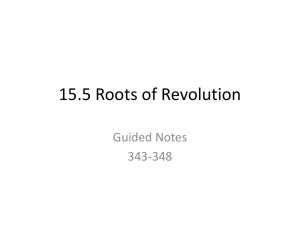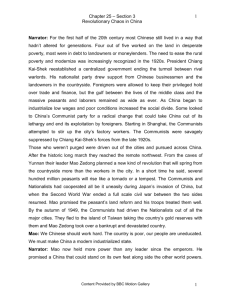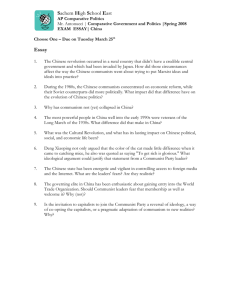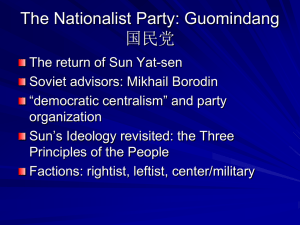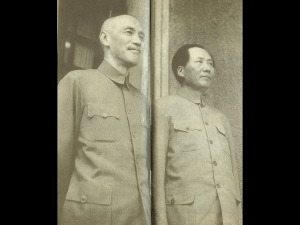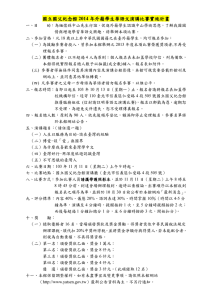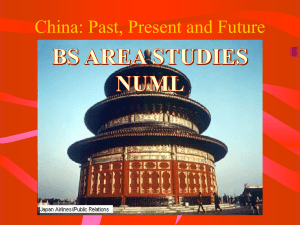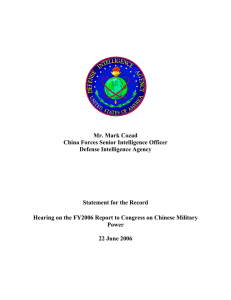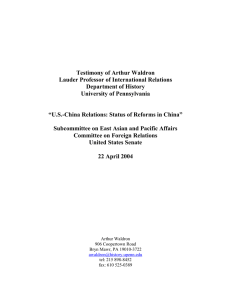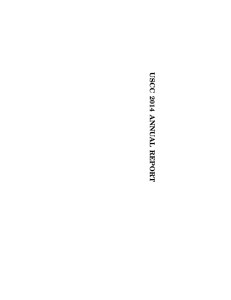Ch 11-4 China Terms Review
advertisement
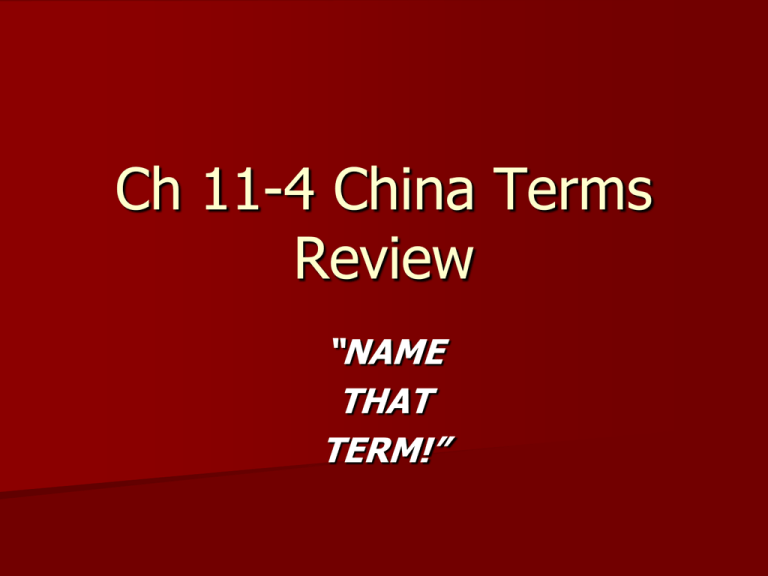
Ch 11-4 China Terms Review “NAME THAT TERM!” BARBARIANS… Chinese reference to all who lived outside of China… This view explains their long-standing policy of isolationism.,, KOWTOW… Europeans refused to do this before China’s Emperors because it was a symbol that showed that foreigners accepted their inferior status… Macao & Guangzhou… In the 1500’s, these were the only Chinese ports that allowed foreign ships to unload cargo. OPIUM WAR… The Chinese fought against the British to stop the flow of an illegal drug from India into China…they were no match for the British and were easily defeated. TREATY OF NANJING… Ended the Opium Wars…the Chinese Emperor agreed to unequal terms under this treaty that allowed for increased foreign influence & control in China. Key point…the British gained complete control of the Island of Hong Kong (lasted until 1997). EXTRATERRITORIALITY… Westerners accused of a crime in China could be tried in their own courts instead of in Chinese courts. SPHERES OF INFLUENCE… An area in which a foreign nation has special economic privileges – these privileges also gave western nations political influence in China. OPEN DOOR POLICY… The US called on European nations to support this in China fearing that they would try to colonize China. (policy failed…but it did protect US trade in China) Taiping Rebellion… Called for reforms in government & society…it marked the beginning of a long, slow revolution in China that would eventually lead to the end of dynastic rule. CI XI… Conservative widow of a former Chinese Emperor who briefly seizes power and restores the Qing Dynasty…she is the last Empress of China – when she dies in 1911, dynastic rule in China comes to an end. Boxer rebellion… Group who called for the expulsion of all foreigners from China…they are easily defeated by an international army of western powers. SUN YATSEN… Briefly served as President of the new Chinese republic in 1911…helped to organize China’s Nationalist Party. His “3 Principles” called for unifying China, improving their standard of living, and forming a democratic government. GUOMINDANG… Another name for the Nationalist Party in China. CHIANG KAI SHEK… Replaced Sun Yatsen as the leader of the Nationalist Party. Led the fight against Mao and the Communists for control of China. LONG MARCH… Fierce battle between Chiang and the Chinese communists that resulted in the retreat of the communists to remote northwest China…despite this loss… the communists will regroup here and use the events of WWII to their advantage and eventually gain power. MAO ZEDONG… Chinese communist leader who becomes Chairman of the People’s Republic of China in 1949. He uses propaganda to help push his communistic ideology in China. Historical status of Taiwan… After their defeat by Mao & the Communist army, the Nationalists fled mainland China to the island of Taiwan. There they established a democratic government & capitalist economy. Mainland China has never officially recognized Taiwan’s sovereignty. The political status of Taiwan has been a political hot button for centuries.
